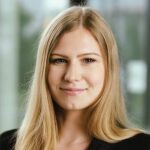The course provides participants with the advanced mathematical and physical tools commonly used in quantum theory. It is designed for those with a background in the mathematical sciences, such as physics or computer science.
Please be aware that this course is not an introduction to quantum computing or quantum technologies. Instead, it serves as a foundation for delving into the extensive introductory and advanced literature in these areas.
The course content is based on four pillars:
- Mathematical foundation: Linear algebra (vectors, matrices, eigenstates, eigenvectors), statistical tools (expectation values, standard deviation, some common probability distributions)
- Quantum physics foundation: Postulates of quantum mechanics, qubits, spatially extended systems, Schrödinger equation, density matrices, uncertainty principle, harmonic oscillator, generalized measurements (positive operator valued probability measures), different formulations (Schrödinger picture, Heisenberg picture, interaction picture)
- Information theory foundation: Shannon entropy, conditional and marginal probability distributions, mutual information, channels and channel capacities
- Quantum many-body physics: Many-body formalisms (tensor products, Schmidt decomposition, reduced density matrices, entanglement measures, second quantisation), special many-body states like Fock states and (bosonic) Gaussian states





